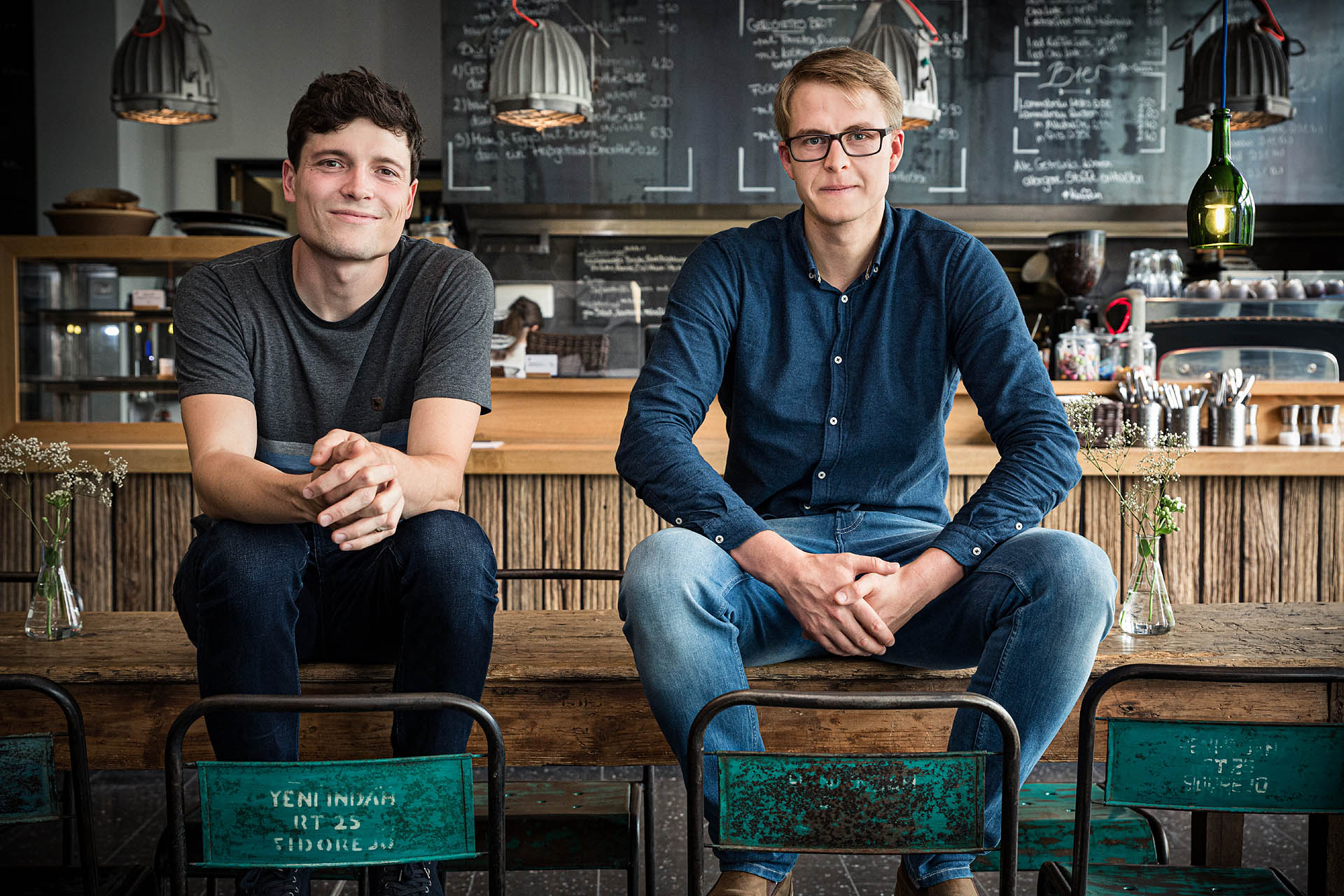EIT FAN Stories: Delicious Data
An interview with Valentin Belser,
co-founder of Delicious Data

Behind Delicious Data stand the two founders Jakob Breuninger (l.) and Valentin Belser (r.). Valentin has a master's degree in aerospace engineering and is responsible for sales and operations. He explained how their startup increases the sustainability along the food value chain.
How did you come up with the idea behind your startup?
The idea was born around three years ago during my master's studies. I was coming late for lunch one day and noticed there is a lot of food waste at the university cafeteria. I started wondering what happens to it, is it distributed between employees, does it get thrown away? So I contacted the manager and discovered they have a database of sales history which is not used at all. I had the idea to use this data and apply machine-learning algorithms to predict future sales which gained a lot of attention.

What is the process of turning an idea to an actual product on the market?
The process behind developing our solution was quite complicated. The meal plan almost never repeats itself at the same time of the year which makes it really challenging to find a precise algorithm. I approached my friend and current business partner Jacob with the idea, we figured out there is a lot of potential and started working full-time. Last summer we closed our first financing deal.
How does your solution work?
Customers can download a cloud-based interface and do their planning in the centralized system. By simply clicking a button you can see a recommendation for the right number of food planning for your expenses. Our solution almost doubles the precision of the result – you save costs, food resources and optimize your workflow. Technically and market-wise it was a pretty clear decision to create this startup. We have a positive impact on the environment by reducing food waste. Moreover, machine-learning accelerated a lot in the past years. There is a great business support behind it – for our customers it is a no-brainer to use our solution.

What makes you stand out from other startups in the field?
Other startups are also working on this concept. So far we are developing our business in the DACH region. We have the competitive advantage online because you can access our solution through a cloud-based web platform. We are currently focusing on large catering companies in Germany which have stable IT resources to connect with our solution. In the future, we are also interested in working with smaller companies.
What specific challenges do you see in our current food system?
Food waste is a tremendous challenge in the food industry – around 1.7 million tonnes of food per year is wasted in Germany and that is all due to the consumer. We need to find solutions for food waste, not only in the catering industry but in the retail, distribution and agricultural sectors. There are many great initiatives from businesses, startups and politicians which tackle this issue. Another challenge is traceability in an increasingly globalised world. We are so interconnected within our supply chain it becomes quite challenging to find out where the food we consume originates from.

How did you get involved with the EIT Food Accelerator Network?
We got invited to the EIT FAN quite early after our founding. We accepted and went to an introduction meeting organised in Munich and instantly decided to participate. Afterwards, we went to Geneva for the pitch. The application stage defined our startup strategy and helped us make a proper business case. We decided not to grow our company organically out of revenue, but to start a financing round to develop faster.
Would you recommend the EIT FAN Programme?
We were part of the first batch of startups and most likely things have changed since. I would recommend the programme, because I really enjoyed taking part in it. We learned a lot from the workshops, networking and coaching events. Distributing the prizes more evenly instead of having three big prizes at the end is an area that needs improvement. It is also important to have a tool through which you can stay in touch with the alumni network to exchange experience and advice.

What advice would you give to early stage startups?
Be passionate about what you are doing, accept failure and that you do not know everything from the start. Seeking help from other founders can help grow your company. We are fortunate to have a strong founding team and even if everything goes wrong, you can always rely on your partner.
How do you see your company develop over time?
We are currently in our growth stage. Our team is strong and focused on product development and sales. We are looking for internationalisation and to solve the problem of food waste on a global scale. Customers are happy with our solution, we receive a very positive feedback which motivates us to keep going and deliver our values.

Learn more about Delicious Data on their official website.
More blog posts by EIT Food West








